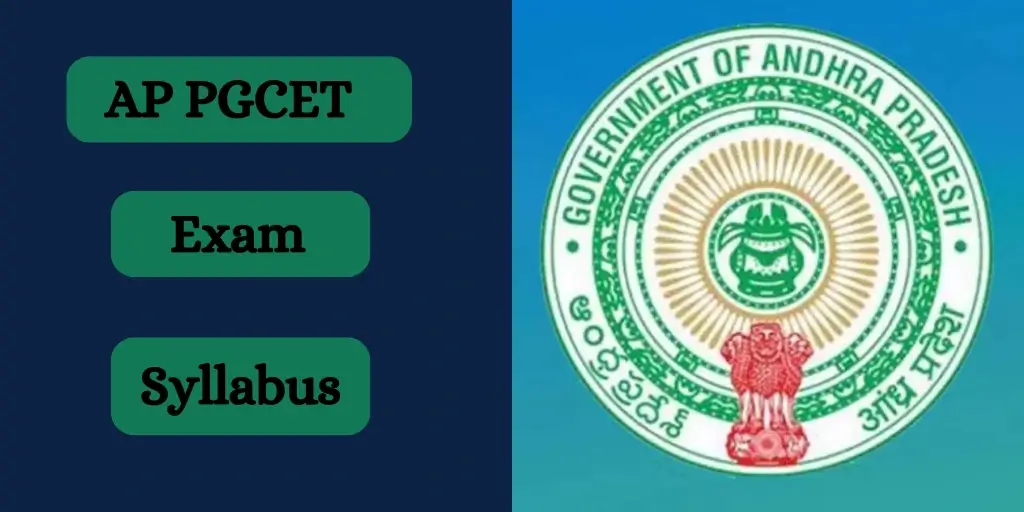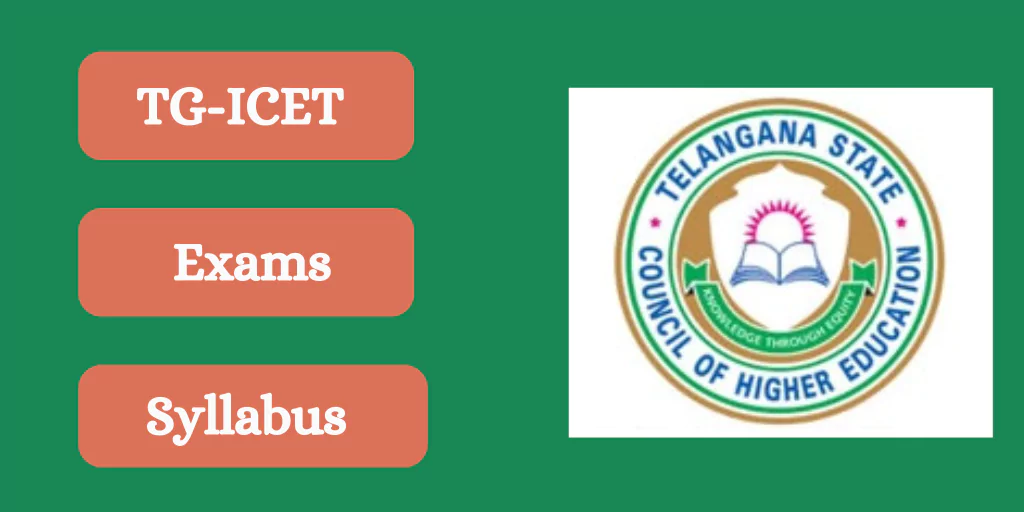Recently updated on May 23rd, 2025 at 02:58 am
The Andhra Pradesh Post Graduate Common Entrance Test (AP PGCET) is designed for admission into various postgraduate programs at Andhra Pradesh universities. The syllabus for AP PGCET generally aligns with the undergraduate curriculum of relevant subjects. Here’s a detailed overview of the syllabus based on typical patterns and available information:
1. Mathematics:
- Algebra: Complex numbers, Matrices, Determinants, Linear equations, Vector spaces, Eigenvalues, and Eigenvectors.
- Calculus: Limits, Continuity, Differentiability, Integration, Differential equations, and Applications.
- Coordinate Geometry: Straight lines, Circles, Conic sections (ellipse, parabola, hyperbola), and 3D geometry.
- Probability and Statistics: Probability distributions, Statistical measures, Sampling, Hypothesis testing.
- Numerical Methods: Numerical solutions of equations, Interpolation, Numerical integration and differentiation.
2. Physics:
- Classical Mechanics: Newton’s laws, Work, Energy, and Power, Systems of particles, Rotational dynamics, Gravitation.
- Electromagnetism: Electric fields, Magnetic fields, Circuits, Electromagnetic waves.
- Thermodynamics and Statistical Mechanics: Laws of thermodynamics, Heat engines, Entropy, Kinetic theory.
- Optics: Wave optics, Geometrical optics, Interference, Diffraction, Polarization.
- Quantum Mechanics: Wave-particle duality, Quantum theory basics, Quantum numbers, Schrödinger equation.

3. Chemistry:
- Physical Chemistry: Thermodynamics, Chemical kinetics, Equilibrium, Quantum chemistry, Surface chemistry.
- Inorganic Chemistry: Periodic table, Coordination compounds, Bonding theories, s-, p-, d-, and f-block elements.
- Organic Chemistry: Reaction mechanisms, Organic synthesis, Functional groups, Stereochemistry.
- Analytical Chemistry: Techniques and instruments used for chemical analysis, Qualitative and quantitative analysis.
4. Biological Sciences:
- Cell Biology: Cell structure and function, Cell division, Genetics, and Biotechnology basics.
- Microbiology: Microbial classification, Microbial physiology, Pathogens and diseases.
- Physiology: Human physiology, Plant physiology, Systems and organs.
- Ecology and Evolution: Ecosystems, Environmental issues, Evolutionary theories, and Principles.
5. Engineering & Technology:
- Engineering Mathematics: Differential equations, Linear algebra, Numerical methods, Probability, and Statistics.
- Electrical Engineering: Circuit theory, Control systems, Electronics, Electrical machines.
- Mechanical Engineering: Thermodynamics, Fluid mechanics, Manufacturing processes, Strength of materials.
- Computer Science & Engineering: Programming languages, Data structures, Algorithms, Computer networks, Operating systems.
6. Commerce and Management:
- Business Economics: Demand and supply, Market structures, Business cycles, Economic policies.
- Accounting and Finance: Financial accounting, Cost accounting, Financial management, Investment analysis.
- Management Principles: Planning, Organizing, Leading, Controlling, Strategic Management.
7. Social Sciences:
- History: Ancient, Medieval, Modern Indian history, World history.
- Political Science: Political theory, Indian polity, International relations.
- Geography: Physical geography, Human geography, Environmental geography.
General Tips:
- Refer to Previous Years’ Papers: Reviewing past papers can give insights into the question patterns and frequently covered topics.
- Focus on Core Areas: Concentrate on topics most relevant to your specific course and specialization.
- Use Standard Textbooks: Adhering to the syllabus and textbooks recommended for your undergraduate program can be beneficial.
For the most accurate and detailed syllabus, checking the official AP PGCET website or contacting the organizing body is recommended, as they provide the latest updates and official guidelines.
Conclusion
In conclusion, the Andhra Pradesh Post Graduate Common Entrance Test (AP PGCET) covers a diverse range of subjects tailored to the specific postgraduate programs offered by Andhra Pradesh universities. Understanding the detailed syllabus—spanning Mathematics, Physics, Chemistry, Biological Sciences, Engineering, Commerce, and Social Sciences—is crucial for effective preparation. By focusing on core topics and using past papers for practice, candidates can enhance their readiness for the exam. For the most accurate and up-to-date information, always refer to the official AP PGCET guidelines and resources.







slot365 casino
August 29, 2024Luôn chơi có trách nhiệm, kiểm soát cảm xúc, tránh tâm lý “gỡ gạc” khi thua. – Đọc kỹ các quy định, chính sách của 888slot com apk trước khi tham gia để bảo vệ quyền lợi cá nhân. – Đảm bảo thông tin tài khoản, giao dịch được bảo mật an toàn.
slot365 rtp
August 29, 2024link 188v cung cấp số hotline hỗ trợ khách hàng 24/7: (+44) 2036085161 hoặc (+44) 7436852791. Tuy nhiên, do chênh lệch múi giờ, bạn nên liên hệ qua các phương thức khác như trò chuyện trực tiếp, email hoặc Zalo để được hỗ trợ nhanh chóng hơn.
game 188v
August 29, 2024slot365 apk nổi bật với ba trụ cột chính: đa dạng trò chơi, bảo mật cao cấp và dịch vụ khách hàng xuất sắc. Mỗi yếu tố này được thiết kế tỉ mỉ nhằm tạo ra môi trường giải trí trực tuyến đẳng cấp, khác biệt hoàn toàn so với các nền tảng thông thường trên thị trường.
188v game
August 29, 2024Chương trình hoàn tiền cũng là một chính sách ưu đãi được 188v battery triển khai nhằm giảm thiểu rủi ro cho người chơi. Với chương trình này, hội viên có thể nhận lại một phần số tiền đã thua trong các trận cá cược.
xn88 win
August 29, 2024Không chỉ có giao diện đẹp mắt, slot365 xx vip còn cung cấp các luật chơi rõ ràng, dịch vụ hỗ trợ nhanh chóng và chuyên nghiệp, đảm bảo mang lại trải nghiệm tốt nhất cho người chơi thông thái.